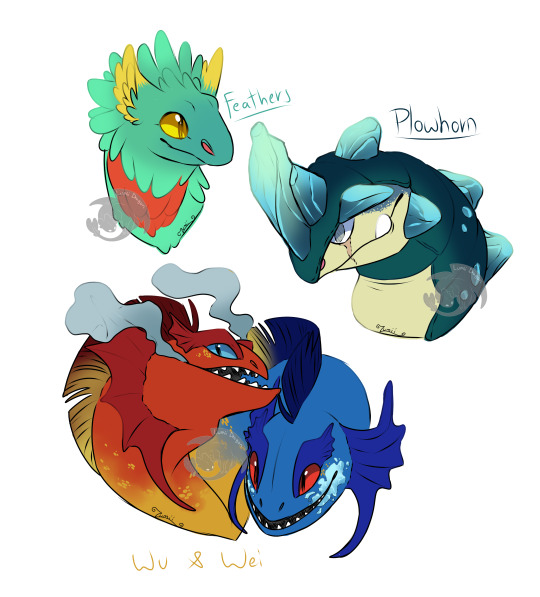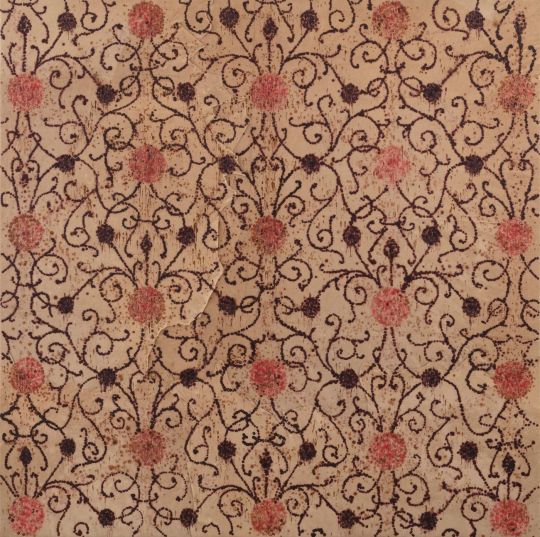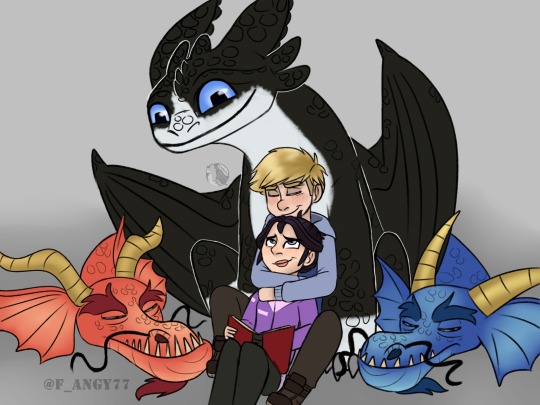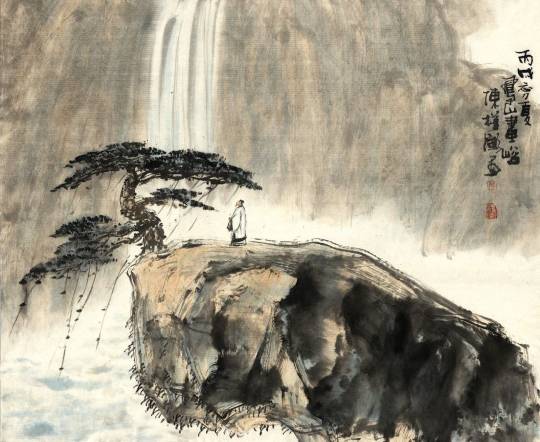#Wu Wei
Explore tagged Tumblr posts
Text

Fishing in Summer Shade, Wu Wei, 1483
#summer#summer solstice#art#art history#Wu Wei#Asian art#China#Chinese art#East Asia#East Asian art#Imperial China#Ming Dynasty#landscape#landscape painting#landscape art#genre painting#genre art#fishing#15th century art#Detroit Institute of Arts
217 notes
·
View notes
Text
O sol não pede para a rosa abrir suas pétalas. Ela o faz pois a carícia dele em forma de luz e calor é irresistível. É simplesmente natural.
#delirantesko#espalhepoesias#pequenosescritores#lardepoetas#carteldapoesia#frases#poetaslivres#projetoalmaflorida#projetovelhopoema#semeadoresdealmas#wu wei
62 notes
·
View notes
Text

The Nine Realms dragons redesigns~
So I wanted to just play around with some ideas for redesigns for Feathers, Plowhorn, and Wu & Wei. Mostly, I wanted to doodle.
I re-designed feathers to actually have more feathers instead of just a few on her head and tail. She's partially based off of a nightjar bird and I wanted her to be a bit more bird-looking over reptile-looking.
Plowhorn kept her rhino-like look, but I added more armor plating instead of the beetle shell. I also wanted to add more crystals along her body to carry out this design choice smoother.
Wu & Wei's designed were changed to represent that of moray eels, specifically a wink to Floatsam and Jetsam from The Little Mermaid. I wanted them to really carry out that aquatic-look and I think the idea of a dragon being eel-like makes for a more interesting design choice with its irony, haha~
I didn't add Thunder on here because I already have a re-design of him and I just didn't have time for Webmaster.
#how to train your dragon#httyd#the nine realms#tnr#redesign#feathers#plowhorn#wu wei#featherhide#gembreaker#mist twister
182 notes
·
View notes
Text
I saw a comment that Xie Lian doesn't follow the Taoist concept of wu wei, but I think that this concept is difficult for us to understand in Western culture. Often it's simplified as "going with the flow," when it is more than that. My favorite explanation of wu wei uses the analogy of riding a wave; when riding a wave you do not want to go against the flow or let it drown you, so you go with the flow of the wave and let it propel you forward. The idea is to find a good balance between being flexibility and strength. Too flexible and external forces will completely control you. Too rigid and the external forces will break you. This also means that to really follow wu wei you are adaptable.

In the case of Xie Lian, he does not try to exert control over the people and situations he comes into contact with. But he also doesn't let them control him. Xie Lian is observant and alert while being open minded. He often sees details and solutions that others miss. And I've also notices during my current rereading of Heaven Official's Blessing that Xie Lian doesn't fret and worry over the future. He does what he can in the moment with whatever is at hand, and sometimes all he has on hand is a half eaten meat bun or a bunch of meatballs. But most of all I think that Xie Lian is a wonderful example of a Taoist because he knows his purpose and does not deviate from his course. Whatever the situation is, whoever is threatening him, and no matter how hopeless everything seems, Xie Lian always faces it was a positive attitude and finds a way to use the flow of his surroundings in his favor.
The more I read about Taoism the more I admire Xie Lian. Of course no one is perfect, and in Heaven Official's Blessing it is clear that not even gods are perfect. But the point is to continue to seek to find a good balance in your life, be flexible, don't worry about the future or dwell too much on the past, and turn bad situations into good ones.
225 notes
·
View notes
Text


In a Land that no longer exists, (2022)
#desire#couple aesthetic#movie scenes#good movie#movie quotes#movie stills#movies#movie aesthetic#cinematography#cinephile#cinema#films#german movie#life quotes#quoteoftheday#wu wei#tao
112 notes
·
View notes
Text
The Philosophy of Dao
The philosophy of Dao, rooted in Daoism (or Taoism), is an ancient Chinese spiritual and philosophical tradition that emphasizes living in harmony with the Dao (or Tao), which translates to "The Way." This concept is central to Daoist thought and is both the source and the pattern of the universe. Here's an exploration of the key principles and ideas within the philosophy of Dao:
1. The Concept of Dao
Dao as the Ultimate Reality: The Dao is an ineffable, underlying principle that governs the cosmos. It is beyond human comprehension and cannot be fully articulated. It is the source of all existence and the force that maintains the natural order of the universe.
The Way of Nature: Dao is often associated with nature and its inherent order. Following the Dao means aligning oneself with the natural flow and rhythms of the world, moving in accordance with the seasons, cycles, and processes of nature.
2. Wu Wei (Non-Action)
Effortless Action: Wu Wei is a key Daoist concept that means "non-action" or "effortless action." It does not imply inaction but rather acting in a way that is in harmony with the Dao, without force or struggle. It is about allowing things to unfold naturally and responding to circumstances with ease and spontaneity.
Harmony and Balance: Practicing Wu Wei involves recognizing and working with the natural currents of life, rather than opposing them. It is a path to achieving harmony and balance in one's actions and interactions.
3. Simplicity and Humility
Living Simply: Daoism advocates for a simple, unadorned life. Materialism and excessive ambition are seen as distractions from the true nature of existence. Simplicity is valued as it brings one closer to the Dao.
Humility: Daoist philosophy emphasizes humility and modesty. It teaches that arrogance and pride lead to discord, while humility aligns one with the harmonious flow of the Dao.
4. Yin and Yang
Complementary Forces: Yin and Yang represent the dualistic yet complementary forces that constitute all aspects of the universe. Yin is often associated with passivity, darkness, and receptivity, while Yang represents activity, brightness, and assertiveness.
Balance: The interplay of Yin and Yang creates harmony and balance in the universe. Daoism teaches that both forces are necessary and that balance between them leads to a harmonious life.
5. Ziran (Naturalness)
Naturalness and Spontaneity: Ziran means "naturalness" or "self-so." It is about being true to one's nature and allowing actions to arise spontaneously from one's innate character and the circumstances, without artificiality or coercion.
Authenticity: Living according to Ziran involves embracing one's authentic self and the natural world, and acting in a way that is true to one's nature.
6. Mysticism and Inner Transformation
Inner Alchemy: Daoism includes practices aimed at inner transformation and spiritual development. These practices, often referred to as inner alchemy, involve meditation, breath control, and physical exercises like Tai Chi and Qigong.
Union with the Dao: The ultimate goal of these practices is to achieve union with the Dao, experiencing oneness with the fundamental principle of the universe and attaining spiritual immortality.
The philosophy of Dao offers profound insights into living a life of harmony, balance, and simplicity. By aligning with the natural order of the Dao, practicing Wu Wei, embracing the complementary forces of Yin and Yang, and pursuing inner transformation, individuals can attain a deeper understanding of themselves and the universe. Daoism invites us to live authentically and humbly, in tune with the fundamental principles that govern existence.
#philosophy#epistemology#knowledge#learning#education#chatgpt#Daoism#Philosophy Of Dao#The Way#Wu Wei#Yin And Yang#Ziran#Naturalness#Inner Alchemy#Harmony And Balance#Spiritual Philosophy#Chinese Philosophy#Laozi#Dao De Jing#Taoism#Nature And The Universe#dao#tao
17 notes
·
View notes
Text

Wu Wei (Chinese, 1981), Skin and Texture - 5, 2023. Leather, wax and copper on woodboard, 180 x 180 cm.
85 notes
·
View notes
Text



💙💜
I don't like this show but I admit that I had a certain affection for these characters, they are so little and now they are so in love.
Sometimes I feel like the only fan of this ship 😂
Httyd still has a place in my heart, and I don't really feel like these characters are another Hiccstrid, I feel like they are very different... They have their own energy, they are also somewhat toxic but they are still cute 💞
#dragons the nine realms#the nine realms#tom kullersen#jun wong#thunder night light#thunder#wu wei#wu and wei#httyd#how to train your dragon
61 notes
·
View notes
Text
Embracing Impermanence: The Path to Wisdom, Freedom, and Transformation
Humanity clings to the illusion of permanence, constructing lives upon the shifting sands of expectations, attachments, and perceived control. Photo by Snapwire on Pexels.com Yet, all that exists is subject to change—our bodies, relationships, societies, even the universe itself. This resistance to impermanence is the root of suffering (dukkha, दुःख) in Buddhist thought and the cause of much…

View On WordPress
#acceptance#Amor Fati#amygdala#anicca#Buddhism#Buddhist philosophy#buddhist wisdom#Change#Dao De Jing#equanimity#impermanence#Marcus Aurelius#meditation#memento mori#Neuroplasticity#Neuroscience#Philosophy#Raffaello Palandri#Stoic#Stoic philosophy#Stoic wisdom#Stoicism#Taoism#Taoist philosophy#Taoist wisdom#transformation#Upekkha#wisdom#Wu Wei
4 notes
·
View notes
Text

Wonder Woman by Wu Wei
#Wu Wei#gal gadot#wonder woman#diana of themyscira#diana prince#dc comics#dcu#dc universe#dc superheroes#dc heroes#art#wonder woman art
17 notes
·
View notes
Text

Viva la morte mia, viva la gioventù!
6 notes
·
View notes
Text
A naturalidade daquilo que deve acontecer é um oceano perto das gotas de lágrimas do que não está destinado a se confirmar.
#delirantesko#espalhepoesias#pequenosescritores#lardepoetas#carteldapoesia#frases#poetaslivres#projetoalmaflorida#projetovelhopoema#semeadoresdealmas#wu wei
27 notes
·
View notes
Text
Wu Wei (Serene Acceptance)
Wu Wei (Serene Acceptance of events). Short film about 6 minutes. https://wp.me/pFy3u-8FO
Wu Wei is a key concept within Daoism — and refers to a serene acceptance of events. It’s a wisdom we’re very uninclined to remember in our own times. Wu Wei. About 6 minutes.
youtube
View On WordPress
5 notes
·
View notes
Text
You'll find me somewhere between Wu Wei and Wu-tang
#meditation#meditateeverydamnday#mindfulness#spirituality#humor#philosophy#spiritual humor#spiritual literacy#wu tang forever#wu wei
3 notes
·
View notes
Text
The Drunk and The Perfected One.

Reading chapter 19 of the Zhuangzi 達生, Understanding Life, we come across a story of a drunk man riding in a carriage, he then proceeds to fall out of the high-moving carriage. However, when he fell out, he was not aware of such an occurrence. He did not fear for his life, nor was concerned with dying. Though he has the same joints and bones as the next person, he does not fear getting hurt. All of this was achieved thanks to the booze.
Now, this is not an excuse to be constantly drunk all the time. The drunk's lack of awareness (being drunk) was brought about by externals; not becoming unselfconscious spontaneously.
Here is the exact quote from Zhuangzi 19.5.1-2:
"When a drunk falls out of a carriage, though it is going fast, he does not die. He has the same bones and joints of others, but when it comes to getting hurt, he is different from them, for his spirit is perfectly whole. He was not even aware he was riding in a carriage, so when he fell out, he was not aware of that either. Alarm for life and death did not enter his breast, which is why such a one could be so at odds with things and yet feel no fear. Since he could achieve such perfect wholeness thanks to drink, how much better could he achieve such perfect wholeness from Heaven?! The Sage hides himself in Heaven, thus no one can harm him."
The one who abides in drink or drugs to achieve this state of "wholeness of spirit" will ultimately fail, once the bottle or baggie runs dry. Yet in those drunken states, they appear very similar to those who abide in Heaven to become whole. The bottle or baggie will always run dry, but Heaven is eternal. The one hiding in the bottle is like the one hiding in Heaven. Because when you get drunk or high, there is no care for the self, body, or life or death. Where they differ is the substance of achieving this notion of discarding the body and distinctions. For the drunk abides in the limited amounts that are contained in their bottle, the Sage abides in Heaven which is boundless, and limitless.
This is the comparison that Master Zhuang is trying to make with the Drunk and The Perfected One. The Drunk and Perfected One achieve similar states of "wholeness" by different means. Though the drunk will become dismembered once the bottle empties, Heaven never runs dry for the Sage or Perfected One. This is why the Perfected One never fails to be Whole, all the time. They abide by a substance that is not a substance. The Sage becomes whole in their extreme sobriety via abstinence and fasting.
The drunk cast away worldly concerns at the cost of his body and mind. The Sage casts away worldly concerns and distinctions by letting go, and letting Heaven take the reigns. Thus, the Sage preserves their material body by discarding the world and its distinctions; and by abiding in Heaven's natural distinctions. In 19.2.1-2, we see this:
"If one wishes to avoid tending to the body, nothing is better than to abandon worldly concerns. Once worldly concerns are abandoned, one is free of entanglements; once free of entanglements, one is true and equitable; once true and equitable, one is reborn therewith; once reborn, one is almost complete. But why is it worthwhile to abandon worldly affairs, and why worthwhile to discard concerns for life? Once one has abandoned worldly affairs, the body is no longer strained; once one has discarded concerns for life, the vital essence is no longer depleted."
All this means that when we abide in Heaven and not the bottle to achieve a wholeness of spirit, we can be reborn or renewed daily. As for why we abandon worldly affairs and distinctions, we do this because they are not Heaven's distinctions, to put it plainly. Master Zhuang says in Chapter 2.14.1 齊物論, "The Dao has no boundaries." Meaning just that, The Dao has no distinctions or things that bind it to one "thing." Later in 2.14.11, Master Zhuang says, "Therefore in such "division" there is a failure to divide; in such "distinction" there is a failure to distinguish."
The drunk achieve their wholeness of spirit by means of initiating the human distinctions, for they are only truly joyful while drunk. The Sage or Perfected One achieves a wholeness of spirit by means of initiating the natural, thus, they invest in life with virtue (19.6.1-3). The drunken one does not abide by their natural principle, and thus, they have to overconsume drink to achieve states similar to the Sage or Perfected One. The Sage abides in nothing of the sort. They abide or hide in Heaven. To "hide" in Heaven means, according to Guo Xiang, "He does not sneak looks out from within his own natural capacity, which is why the text says "hide." The drunk uses conscious knowledge to get drunk and thus achieves a "wholeness of spirit," but this wholeness of spirit is an illusion, and the illusion fades ever away as they sober up. I imagine this character who fell out of this high-moving carriage was pretty sore once he sobered up. Though the Perfected One abides in no such conscious action or knowledge; instead abides unconsciously with Heaven and its natural distinctions, and no such conscious use of knowledge, and thus is never harmed. This is why the Perfected One may maintain such a state of pure Joy as described in the previous chapter of the Zhuangzi, 至樂 Perfect Enjoyment. The Sage, being One with Heaven and Earth and not with human things such as drugs or bottles of booze, can be truly joyful. Which has nothing to do with happiness or sadness, but more on that can be read up here on my Twitter.
So, in conclusion, the point here is that while the Drunk and The Perfected One may appear to achieve similar states of being, one is obviously an illusion brought about by conscious effort and knowledge (The Drunk). While the Perfected One achieves their wholeness of spirit through unconscious effort, wu-wei 無為. The Perfected One abides in the unknowable bounds of Fate and Heaven. And is thus able to not be harmed by anyone or anything.
9 notes
·
View notes
Text
Effort
Effort is not the flow. Trillions of your cells within your body are functioning without any effort. Each cell does what it can and able to do and accomplish. More like a flow. When the cell comes upon an obstacle, a blockage that prevents it from functioning, then it requires an "effort" to overcome it , or not. If is unable to overcome the obstacle, then a disruption has happened and a disease is more likely to occur.
With our 4D mirror, the ability to "read" and "observe" the 3D neural patterns by the different vibrations and frequencies from each different neural pattern, we have this "consciousness" of understanding the outside world. What is crucial to understand is that our 4D mirror can not create 3D thoughts. Can not create words. Can not create 3D neural patterns. Can not trigger neurons to spike and to be activated. Our 4D mirror can only "observe" and "read" 3D neural vibrations from neural patterns.
All our actions, all our thoughts, all our desires, all our fears, and all our emotions and reactions, are not caused by our 4D mirror, but from our 3D physical body! This is a profound realization! From your 3D physical body is all effort. The 4D mirror if pure is no effort, as then what is the cause of one's actions, thoughts, and beliefs?
If your 4D mirror is pure, then all your actions come out of this purity. There is no effort as then, instead of your reactions from memories, and experiences, your reactions are from the entire environment, and not from a set of past experiences, fears, desires, wants, and emotional triggers.
Effort is from your memories, wants, desires, fears, experiences, and expectations. Effortless is from the entire environment without any input from your past experiences, memories, desires, and fears. A pure mirror is the effortless as you then do what the now environment tells you what to do and no interpretation from your memories and emotions!
#wu wei#consciousness#atheist#mind#meditation#buddhism#spiritual#buddha#atheism#buddhist#hinduism#taoism#tao#daoist#dao#gnosis#gnosticism#mysticism#mystical#mystic#zen#christianity#purpose#meaning of life#thoughts#emotions#stream of consciousness#thinking#perception#illusion
5 notes
·
View notes